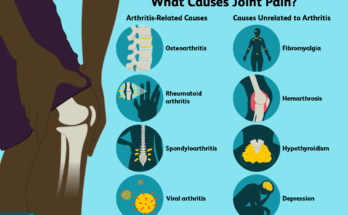Finding effective methods to manage stress and improve our mood has become increasingly essential as our lives become busier and more stressful. High-Intensity Interval Training is one such method. (HIIT).
HIIT is a type of exercise that consists of brief bursts of high-intensity activity followed by periods of rest or low-intensity activity. This form of training has been shown to be extremely effective in lowering stress and improving mood.

The Science Behind HIIT and Stress Reduction:
Stress is a widespread issue that affects many people and can harm both bodily and mental health. Exercise has long been recognized as a potent stress-reduction tool, and new research suggests that HIIT may be especially effective.
HIIT reduces stress by inducing the release of endorphins, which are natural chemicals in the body that help to reduce pain and enhance feelings of joy and well-being. Endorphins are the body’s “feel-good” chemicals, and they can help to mitigate the negative impacts of stress.
HIIT can also reduce stress by improving the body’s ability to manage stress in the first place. When you do high-intensity exercise, your body reacts by producing more stress hormones like cortisol. However, with consistent HIIT workouts, your body becomes more capable of dealing with these stress hormones, which can help to mitigate their negative effect.
How HIIT Can Improve Mood:
In addition to reducing stress, HIIT has been shown to have a positive impact on mood. This is likely due in part to the release of endorphins during exercise, which can help to boost feelings of happiness and well-being. However, there may be other factors at play as well.
For example, some research has suggested that HIIT may help to improve cognitive function, including memory and attention. This could be particularly beneficial for people who are dealing with stress or anxiety, as it can help to improve their ability to focus on tasks and manage their emotions.
Another way that HIIT can improve mood is by providing a sense of accomplishment and mastery. When you engage in high-intensity exercise, you are pushing your body to its limits and achieving things that you may not have thought possible. This can be a powerful boost to self-esteem and confidence, which can help to improve mood and reduce stress.
Here are some of the ways HIIT can help reduce stress and improve mood:
HIIT releases endorphins:
When you exercise, your body produces endorphins, which are natural feel-good compounds. Short bursts of intense exercise are used in HIIT, which can result in a rapid release of endorphins. This can help you feel better and decrease stress.
HIIT reduces cortisol levels:
cortisol is a hormone that is released in response to stress. High levels of cortisol can lead to a range of negative health effects, including increased blood pressure and a weakened immune system. HIIT has been found to be effective in reducing cortisol levels, which can help alleviate the negative effects of stress.
HIIT improves sleep:
Stress frequently causes disruptions in sleep habits, which can exacerbate stress and create a vicious cycle of stress and poor sleep. HIIT has been shown to enhance sleep quality, reducing stress and improving can reduce stress, and improve mood.
HIIT provides a sense of accomplishment:
Regular exercise can give you a feeling of accomplishment and boost your self-esteem. As individuals gain control and mastery over their physical and mental well-being, their mood and stress levels improve.
Boosting Self-esteem:
Another benefit of HIIT for mental health is that it can help to boost self-esteem. This is because regular exercise can help to improve body image and increase feelings of self-worth.
How to Incorporate HIIT into Your Routine:
If you want to incorporate HIIT into your workout regimen, there are several options. Here are a few pointers:
- Begin Slowly: If you’re new to HIIT, it’s critical to begin slowly and progressively increase your intensity. This will aid in injury prevention and enable your body to adapt to the new demands of the exercise.
- Vary Your activities: Vary your activities to avoid boredom and get the most out of your HIIT workout. This can range from running to jumping jacks to burpees.
- Consider Hiring a Trainer:If you’re unsure how to perform HIIT exercises correctly, consider hiring a personal trainer. They can assist you in developing a personalized workout plan and ensuring you are performing exercises properly to avoid injury.
In summary, HIIT can be an effective tool in managing stress levels and improving mood. It releases endorphins, reduces cortisol levels, improves sleep, and provides a sense of accomplishment. Incorporating HIIT into your regular exercise routine can be an important step in improving your overall physical and emotional well-being.
If you are interested in trying HIIT, it is important to start slowly and gradually build up the intensity over time. It is also important to consult with a healthcare professional before beginning any new exercise program.
In addition to exercise, there is a range of other strategies that can be effective in managing stress levels and improving mood, including mindfulness meditation, deep breathing exercises, and spending time in nature. By incorporating a variety of these strategies into your daily routine, you can help reduce stress levels and improve your overall wellbeing.

.



